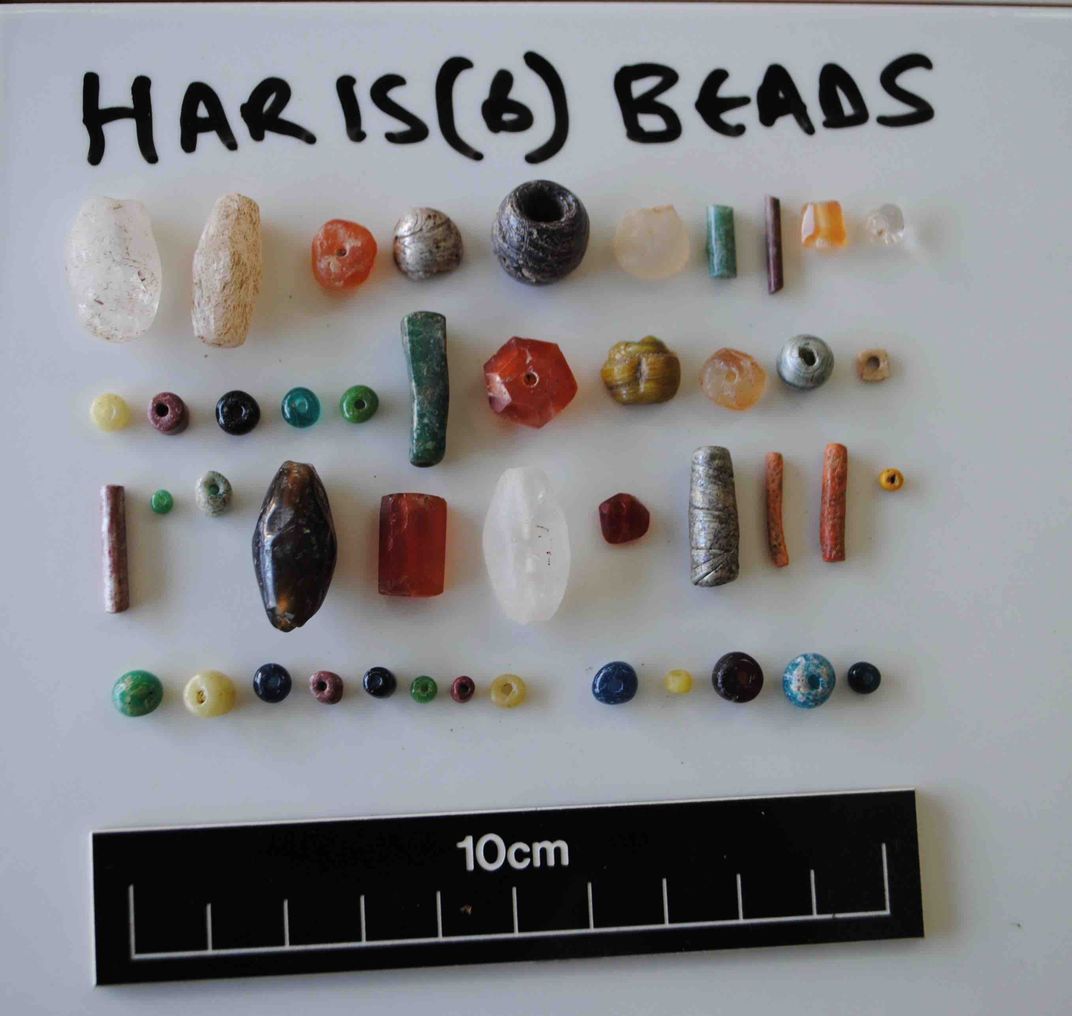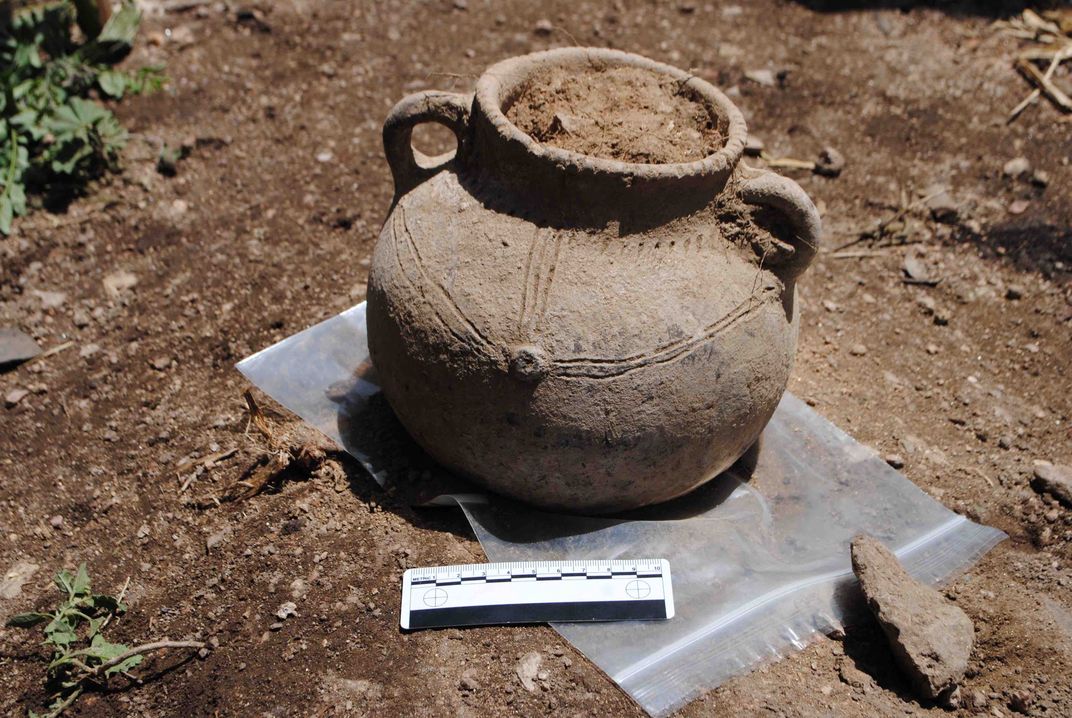Remains of Thriving Trade City Found in Ethiopia
The archaeological excavation at Harlaa suggests the region was a hub for Islamic communities in Africa
/https://tf-cmsv2-smithsonianmag-media.s3.amazonaws.com/filer/ae/e4/aee45af8-f2c3-4d28-b81c-2b2a10cf8016/excavations_5_lr.jpg)
Local residents of Harlaa in Eastern Ethiopia believe that their land was once occupied by giants. The area is dotted with centuries-old walls and structures, built with stones so large that it seems impossible ordinary men could lift them. During a recent excavation in Harlaa, archaeologists did not uncover any evidence of colossal inhabitants. But as Conor Gaffey reports for Newsweek, they unearthed troves of jewelry, pottery, glass fragments and other artifacts from as far away as India and China. These remarkable finds suggest that Harlaa, a region long overlooked by archaeologists, was once a thriving center of trade.
The settlement may date to as early as the 10th century, and it was home to an Islamic population. A team of experts from the University of Exeter and the Ethiopian Authority for Research and Conservation of Cultural Heritage found a cemetery containing the remains of some 300 bodies, along with evidence of Islamic burials and headstones.
But Harlaa was a cosmopolitan hub frequented by a vast array of peoples. Researchers uncovered artifacts—glass vessels and beads, rock crystals, gemstones, cowry shells and pottery—that originated in Yemen, Madagascar, the Maldives and China. Archaeologists also discovered bronze and silver coins from 13th-century Egypt. Delicate jewelry made in Harlaa seems to have been modeled after Indian pieces, and a 12th-century mosque bears similarities to those found in Southern Tanzania and Somaliland.
These finds suggest that Harlaa belonged to a network of Islamic communities in Africa, and that it was also linked to other culturally diverse locations. “This discovery revolutionizes our understanding of trade in an archaeologically neglected part of Ethiopia,” University of Exeter professor Timothy Insoll, who led the excavation, says in a statement.
“What we have found shows this area was the center of trade in that region,” Insoll continues. “Residents of Harlaa were a mixed community of foreigners and local people who traded with others in the Red Sea, Indian Ocean and possibly as far away as the Arabian Gulf.”

Researchers have dubbed Harlaa a “forgotten” city because for many years, it went unnoticed by experts. According to the University of Exeter press statement, there have been few archaeological excavations of Islamic sites in Ethiopia, since the bulk of research has concentrated on the country’s ancient human remains. As the BBC points out, Ethiopia is one of the earliest regions known to have been inhabited by human ancestors, with some remains dating to between 3.3 and 3.5 million years old.
Though Harlaa only recently made it onto archaeologists’ radar, farmers working the land have long been unearthing pottery and coins in the area, making them confident that important details of Ethiopia's history were lying just underneath the soil.
